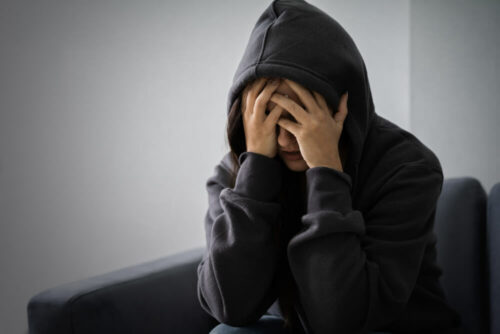Being Resilient During the Ride
Addiction recovery is a life that reaps both short and long-term rewards. Though recovery is a special kind of life because it is filled with gratitude and humility, it is still life just like any other because it has its ups and downs. An important lesson for those in recovery to learn is how to cope. During active addiction, the addictive substance or behavior is their primary -if not only- coping mechanism. Recovery means that individuals must learn new coping strategies.
Bad days have many faces. The boss may make an unreasonable demand. The children will not cooperate. The unpaid bills are stacked up. A family member may be the most disagreeable person on earth during that day. While no one likes bad days, they are inevitable. One bad day cannot be the wrecking ball for accrued recovery time.

Strategies for Handling a Bad Day in Recovery
Taking a Different Perspective on the Situation
A famous saying says, “Life is only 10 percent of what happens to us, and 90 percent how you look at it.” There is a positive and negative side to everything in life. The key is to zero in on the positive side. For example, if the boss is abusing his or her authority by assigning unreasonable tasks and implementing arbitrary rules, the positive side to that is the employees are challenging themselves and practicing self-discipline. The recovering individuals should take the time after feeling the knee-jerk reaction to step back and search for the positive side of the situation. Even if they do not believe it at that time, they should fake it until they make it.
Seek Support
Addiction Recovery programs were founded on the idea that recovery is impossible to achieve alone. An individual’s best chances of maintaining long-term recovery are to have a support system of other recovering individuals. At the end of a bad day, struggling recovering individuals can seek out an in-person, phone, or online meeting of a 12-Step or 12-Step-Alternative program of their choosing. If it is too late in the day to attend a meeting or attending a meeting is not possible, recovering individuals can call or text their sponsor or another member of their program. Talking to other recovering individuals is superior to calling a family member or friend that is not in addiction recovery because recovering individuals can understand the thoughts and emotions that are involved in a bad day in recovery and the common problems in recovery.
Meditation
Meditation is an excellent stress management technique. Many people think that they cannot meditate because their mind wanders when meditation is not about sitting quietly with an empty mind. Meditation is simply about being present and giving gentle attention to thoughts and emotions. Staying focused in the moment helps people let go of negative emotions, not get caught in worries and fear of the future, and get a better perspective on the situation.
Journaling
Journaling is actually an evidence-based therapy method. When people journal, they can write down whatever they are thinking and feeling, without fear of judgment. Handwriting in a journal is better than typing on a computer because the muscle movement can help get the emotions out.
Do a Positive Activity
Doing a positive activity (e.g. walking, yoga, coloring in adult activity books, etc.) can alleviate stress and make a person feel better because doing positive activities releases dopamine, a neurotransmitter that makes people feel pleasure. Drug and alcohol recovery requires individuals to avoid unnecessary stress and keep their dopamine levels up reduce the need to alleviate stress and seek pleasure using chemical substances.
Ride it Out
Bad times do not last forever. A saying from the 12-Step Programs says, “Do not make permanent decisions over temporary feelings.” An old adage says, “What does not kill you makes you stronger.” Bad times just need to be sat through sometimes. However, relapse does not always have temporary consequences. Overdosing or dying as a result of their addiction is common after people in drug and alcohol recovery relapse. A temporary bad day is not worth a life that could have been wonderful.
The Stock Market Analogy
Recovery is like the stock market. There are good and bad days, but if the overall trend points to the better, progress is being made. A heart monitor, which reflects life, also goes up and down, but as long as it keeps going, the person is still alive. If a hard monitor were a straight line, even if it were on the top of the chart, that means that there is no life. Nothing can be good or positive if there is not a bad or negative alternative to it. There have to be bad days in recovery for there to be good days. The bad days are teachable moments disguised as tests.
A bad day in recovery does not mean a bad life. Stress for someone in recovery may be difficult to handle, but it’s nothing that cannot be dealt with. Utilizing healthy methods allows individuals in recovery to manage bad days in a positive way that won’t hinder their sobriety.
The Detox Center of L.A. Can Help You Regain Control Of Your Life
Anyone can become addicted to drugs, although some individuals have a greater risk based on personal or environmental factors. Nevertheless, opioid abuse has destroyed families, careers, and personal relationships. It causes helplessness or hopelessness in individuals struggling to overcome this vice. If this is you, or a loved one, you should know that recovery and long-term sobriety is possible.
The Detox Center of L.A. created a structured, safe, and compassionate environment where your recovery needs can be met by a qualified medical team. It consists of doctors, nurses, therapists, counselors, and case managers. They ensure treatment is tailored to give you the best possible chance at recovery and sustained sobriety.





